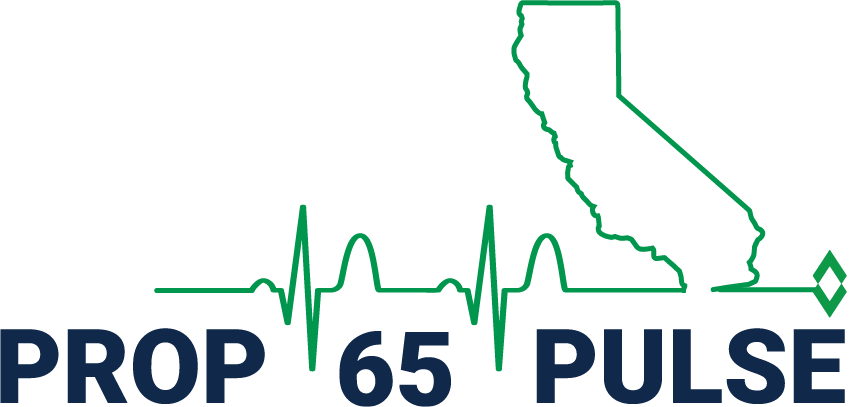September 2024 Bounty Hunter Plaintiff Claims

Exploring Trends in California’s Proposition 65: Claims, Chemicals, Products, and More
California’s Proposition 65 (“Prop. 65”), the Safe Drinking Water and Toxic Enforcement Act of 1986, requires, among other things, sellers of products to provide a “clear and reasonable warning” if use of the product results in a knowing and intentional exposure to one of more than 900 different chemicals “known to the State of California” to cause cancer or reproductive toxicity, which are included on The Proposition 65 List. For additional background information, see the Special Focus article, California's Proposition 65: A Regulatory Conundrum.
Because Prop. 65 permits enforcement of the law by private individuals (the so-called bounty hunter provision), this section of the statute has long been a source of significant claims and litigation in California. It has also gone a long way in helping to create a plaintiff’s bar that specializes in such lawsuits. This is because the statute allows recovery of attorney’s fees, in addition to the imposition of civil penalties as high as $2,500 per day per violation. Thus, the costs of litigation, and settlement, can be substantial.
The purpose of Keller and Heckman’s latest publication, Prop 65 Pulse, is to provide our readers with an idea of the ongoing trends in bounty hunter activity.
In September of 2024, product manufacturers, distributors, and retailers were the targets of 447 new Notices of Violation (“Notices”) and amended Notices, alleging a violation of Prop. 65 for failure to provide a warning for their products. This was based on the alleged presence of the following chemicals in these products. Noteworthy trends and categories from Notices sent in September 2024 are excerpted and discussed below. A complete list of Notices sent in September 2024 can be found on the California Attorney General’s website, located here: 60-Day Notice Search.
Food and Drug |
||
| Product Category | Notice(s) | Alleged Chemicals |
|
Alcoholic Beverages |
59 Notices |
Alcoholic beverages, when associated with alcohol abuse |
| Seafood: Notices include seaweed chips, anchovy paste, dried mackerel, and smoked oysters | 24 Notices | Cadmium and Cadmium Compounds, and Lead and Lead Compounds |
| Dietary Supplements: Notices include protein powder, dried hibiscus, and seaweed capsules | 21 Notices | Cadmium, Mercury and Mercury Compounds, Lead and Lead Compounds, and Perfluorooctanoic Acid (PFOA), and Perfluorooctane Sulfonate (PFOS) |
| Noodles, Pasta, and Grains: Notices include mushroom risotto, mac & cheese, pearl barley, and chickpea spaghetti | 20 Notices | Arsenic (inorganic arsenic compounds), Lead, Cadmium, and Mercury |
| Fruits and Vegetables: Notices include butter lettuce, plantain chips, and dried mangoes | 18 Notices | Arsenic (inorganic arsenic compounds), Lead and Lead Compounds, Cadmium, and Mercury |
| Assorted Prepared Food and Snacks: Notices include crackers, trail mix, chili, granola, spices and sauces, and nuts | 14 Notices | Acrylamide, Cadmium, and Lead and Lead Compounds |
Cosmetics and Personal Care |
||
| Product Category | Notice(s) | Alleged Chemicals |
| Personal Care Products: Notices include sunscreen, shampoo, lotion, body wash, styling gel, mascara, eyeliner, face masks, Halloween makeup and pain relieving cream | 112 Notices | Coconut Oil Diethanolamine condensate (cocamide diethanolamine) and Diethanolamine |
| Personal Care Items in Plastic Cases: Notices include spa sets and hair accessory sets | 5 Notices | Di(2-ethylhexyl)phthalate (DEHP) |
Consumer Products |
||
| Product Category | Notice(s) | Alleged Chemicals |
| Sports equipment: Notices include pickleball supplies |
41 Notices |
Lead |
| Plastic Pouches, Bags, and Accessories: Notices include handbags and backpacks | 38 Notices | Di(2-ethylhexyl)phthalate (DEHP), Diisononyl phthalate (DINP), and Di-n-butyl phthalate (DBP) |
| Housewares, First Aid Supplies, and Other Tools |
27 Notices |
Di(2-ethylhexyl)phthalate (DEHP) and Diisononyl phthalate (DINP) |
| Glassware and Ceramics: Notices include mugs and lamps | 27 Notices | Lead |
| Housewares and Tools: Notices include brass fittings and door handles, and paint | 14 Notices | Lead |
| Clothing, Cookware, and Housewares | 10 Notices | Perfluorooctanoic Acid (PFOA) |
|
Various Consumer Products: Notices include toys, games, sports gear, clothing, and shoes |
10 Notices |
Di(2-ethylhexyl)phthalate (DEHP) and Diisononyl phthalate (DINP) |
| Clothing and Shoes: Notices include heels and leggings; lanterns | 3 Notices | Bisphenol A (BPA) |
| Adhesive Products | 2 Notices | Toluene |
There are numerous defenses to Prop. 65 claims and proactive measures that industry can take prior to receiving a Prop. 65 Notice in the first place. Keller and Heckman attorneys have extensive experience in defense of Prop. 65 claims and in all aspects of Prop. 65 compliance and risk management. We provide tailored Prop. 65 services to a wide range of industries, including food and beverage, cosmetics and personal care, consumer products, chemical products, e-vapor and tobacco products, household products, plastics and rubber, and retail distribution.
To contact us with questions or for more information about California's Proposition 65, email prop65@khlaw.com or call our Washington, DC office at 202.434.4100 or our San Francisco office at 415.948.2800.